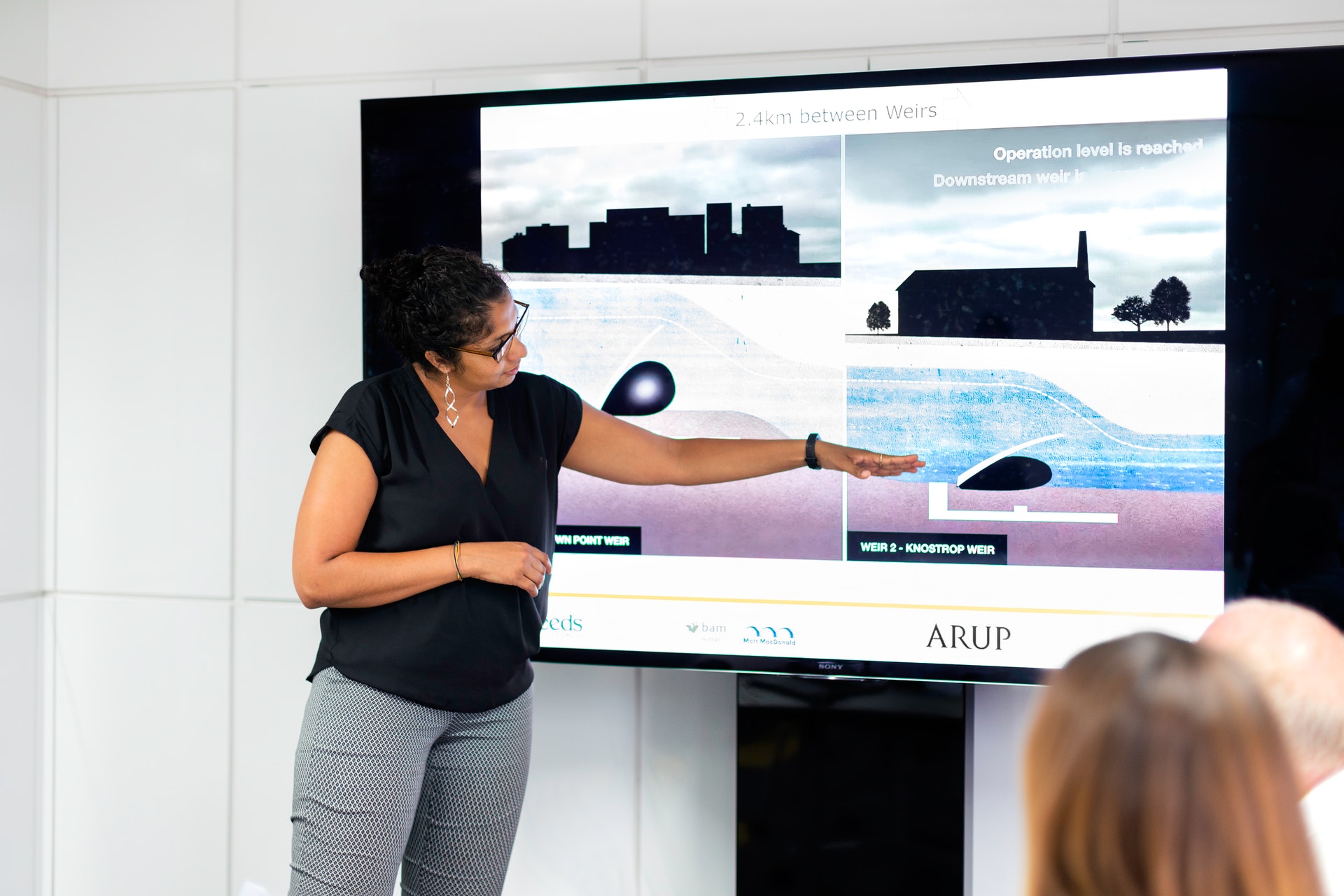
Software development is undergoing a massive transformation, driven by rapid technological advancements in AI, cloud computing, blockchain, low-code platforms, cybersecurity, and quantum computing. The future of software development is not just about writing code but about building intelligent, secure, and scalable applications that adapt to evolving business and user needs.
From AI-driven automation to decentralized applications, let’s explore the key trends shaping the future of software development and how developers can stay ahead in this dynamic landscape.
🚀 Key Trends Shaping the Future of Software Development
1️⃣ AI-Powered Development: The Era of Intelligent Coding
Artificial Intelligence (AI) is redefining software development by enhancing productivity, automating repetitive tasks, and improving code quality. Some key AI-driven changes include:
✅ AI-Assisted Coding: Tools like GitHub Copilot and OpenAI’s ChatGPT can suggest code snippets, detect errors, and optimize efficiency.
✅ Automated Bug Detection & Fixes: AI-driven debugging tools predict and resolve software issues before deployment.
✅ AI-Generated Software: The rise of AI-driven software that can generate, test, and optimize its own code with minimal human intervention.
✅ Natural Language Programming: AI-powered development environments allow programmers to write code using human language, reducing technical complexity.
💡 Future Outlook: AI will enable faster software development cycles, reduce manual effort, and allow developers to focus on creative problem-solving rather than routine coding.
2️⃣ Low-Code & No-Code Platforms: Democratizing Software Development
The demand for faster, cost-effective development has led to the rise of low-code and no-code platforms, allowing businesses to create applications without deep coding expertise.
✅ Faster Development Cycles: Build applications in days instead of months.
✅ Reduced Dependency on Developers: Business users can create apps without writing complex code.
✅ Improved Collaboration: IT teams and business users can work together more efficiently.
✅ Scalability & Flexibility: Modern platforms allow integration with AI, databases, and cloud services.
💡 Future Outlook: Traditional development won’t disappear, but low-code/no-code solutions will bridge the gap between developers and non-technical users, enabling more innovation.
3️⃣ Cloud-Native & Serverless Computing: The Future of Scalable Applications
Cloud computing has revolutionized software deployment, and the future will see a greater shift toward serverless and cloud-native applications.
✅ Microservices Architecture: Applications are divided into smaller, independent services that communicate with each other, improving efficiency and scalability.
✅ Serverless Computing: Developers can focus on code without managing infrastructure, reducing operational costs.
✅ Multi-Cloud & Hybrid Cloud Solutions: Companies will use multiple cloud providers (AWS, Azure, Google Cloud) to avoid vendor lock-in and increase reliability.
✅ Edge Computing: Processing data closer to the source, reducing latency for real-time applications like IoT and AI analytics.
💡 Future Outlook: Cloud-native applications will dominate the industry, enabling businesses to build resilient, flexible, and cost-effective software solutions.
4️⃣ Blockchain & Decentralized Applications (DApps): The Next Internet Revolution
Blockchain technology is extending beyond cryptocurrencies, bringing enhanced security, transparency, and decentralization to various industries.
✅ Smart Contracts: Automating business processes with self-executing contracts.
✅ Decentralized Finance (DeFi): Eliminating intermediaries in banking and finance.
✅ Secure Data Sharing: Preventing fraud and unauthorized data access.
✅ Decentralized Identity Management: Protecting user privacy with blockchain-based authentication.
💡 Future Outlook: Blockchain-based applications will revolutionize industries like finance, healthcare, supply chain, and digital identity management.
5️⃣ Quantum Computing: A New Paradigm for Software Development
Quantum computing is still in its early stages, but its potential to solve complex problems at an unimaginable speed is attracting significant investment.
✅ Breaking Encryption: Traditional security models may become obsolete, requiring new quantum-resistant cryptographic methods.
✅ Advanced AI & Machine Learning: Quantum computing can process massive datasets exponentially faster than today’s supercomputers.
✅ Scientific & Medical Breakthroughs: Quantum simulations can revolutionize drug discovery, climate modeling, and material science.
💡 Future Outlook: Developers will need to learn new programming paradigms as quantum computing becomes more mainstream, potentially reshaping the entire software industry.
6️⃣ Cybersecurity & Ethical AI Development: Security-First Approach
As cyber threats increase, secure coding practices and ethical AI development will become non-negotiable.
✅ DevSecOps (Development + Security + Operations): Integrating security at every stage of software development.
✅ Zero Trust Architecture: No device or user is automatically trusted; security policies are enforced everywhere.
✅ AI-Powered Cybersecurity: AI will detect and respond to security threats in real-time.
✅ Regulations & Compliance: Stricter data protection laws (e.g., GDPR, CCPA) will force businesses to prioritize security.
💡 Future Outlook: Security will be embedded into the development lifecycle, making it an integral part of coding standards rather than an afterthought.
7️⃣ The Rise of Extended Reality (XR): Merging Digital & Physical Worlds
Virtual Reality (VR), Augmented Reality (AR), and Mixed Reality (MR) are expanding beyond gaming into industries like healthcare, education, real estate, and retail.
✅ AR in Retail: Virtual try-ons and interactive shopping experiences.
✅ VR in Education: Immersive learning experiences in classrooms.
✅ MR in Healthcare: Real-time medical training and remote surgeries.
✅ Enterprise & Remote Work: Virtual offices and meetings in the metaverse.
💡 Future Outlook: Extended Reality (XR) will reshape how people interact with digital content, making user experiences more immersive and interactive.
🔮 What’s Next?
The future of software development is being shaped by intelligent automation, decentralization, enhanced security, and seamless cloud integration. As technology evolves, developers will need to adopt new skills, embrace AI-driven tools, and prioritize cybersecurity to stay ahead.
💡 Key Takeaways
✅ AI & Automation will drive efficiency and productivity.
✅ Low-Code & No-Code platforms will make development accessible to everyone.
✅ Cloud Computing & Serverless architectures will enhance scalability.
✅ Blockchain & Decentralization will redefine security and transparency.
✅ Quantum Computing will open new possibilities for software innovation.
✅ Cybersecurity & Ethics will be a top priority in development.
✅ XR & Metaverse will revolutionize digital experiences.
The software development industry is moving toward a smarter, more secure, and more inclusive future. Developers who adapt to these emerging trends will be at the forefront of innovation in the years to come.
❓ FAQs: Future of Software Development
How will AI impact software development in the future?
AI will automate repetitive coding tasks, assist in debugging, optimize software performance, and even generate entire applications using machine learning models. AI-powered tools like GitHub Copilot and ChatGPT will enhance developer productivity and efficiency.
Will low-code and no-code platforms replace traditional software developers?
No, low-code and no-code platforms will complement traditional development rather than replace it. These platforms allow non-technical users to create applications quickly, but complex software solutions will still require skilled developers.
What is the future of cybersecurity in software development?
With rising cyber threats, future software development will prioritize security-first approaches like DevSecOps, Zero Trust Architecture, and AI-driven threat detection. Developers will need to focus on secure coding practices and compliance with global regulations.
How will quantum computing affect software development?
Quantum computing will revolutionize fields like cryptography, AI, and scientific simulations. Developers will need to learn quantum programming languages and new security protocols to adapt to this emerging technology.
What role will blockchain play in future software applications?
Blockchain technology will enhance security, transparency, and decentralization in software applications. It will be widely used in finance, supply chain management, digital identity verification, and decentralized applications (DApps).
How will extended reality (XR) change software development?
AR, VR, and MR will create new opportunities for interactive applications in education, healthcare, real estate, and retail. Developers will focus on immersive experiences and seamless integration between digital and physical worlds.
What programming languages will dominate the future?
Languages like Python, JavaScript, and Rust will remain popular, while AI-focused languages like Julia and quantum computing languages like Q# and Quipper may gain prominence. Low-code platforms may reduce the need for coding in some areas.
How will cloud computing evolve in software development?
Cloud-native and serverless architectures will dominate, enabling scalable, cost-effective applications. Multi-cloud and hybrid cloud strategies will become standard to ensure flexibility and security.
Will developers need to learn new skills to stay relevant?
Yes, developers will need to upskill in AI, cybersecurity, blockchain, cloud computing, and quantum computing to stay competitive. Continuous learning and adaptation will be key to future-proofing careers.
What industries will benefit most from future software innovations?
Healthcare, finance, education, retail, logistics, and entertainment will see the most significant impact from advancements in AI, blockchain, XR, and cloud computing.
The future of software development is evolving rapidly, driven by advancements in artificial intelligence, blockchain, cloud computing, and emerging technologies like quantum computing and extended reality. AI will automate coding and improve software efficiency, while low-code and no-code platforms will make development more accessible. Cybersecurity will remain a top priority, ensuring robust protection against growing digital threats. As industries continue to embrace technology, developers must adapt by learning new skills and staying ahead of trends. The integration of AI, automation, and cloud-native solutions will redefine how software is built and deployed. Companies that embrace innovation and developers who invest in continuous learning will lead the future of software development.
Among the top players in the industry, Webeterno stands out as the best software development company, offering cutting-edge solutions tailored to the needs of businesses across various sectors. With a strong focus on innovation, scalability, and security, Webeterno ensures that clients stay ahead in the ever-changing digital landscape.
With limitless possibilities on the horizon, software development will continue to shape the way we live, work, and interact with technology. The future is not just about writing code it’s about creating smarter, more efficient, and user-centric solutions that drive progress across all industries. 🚀












